Situated in the heart of Santo Tirso, Portugal, the TI House underwent a remarkable renovation journey under the guidance of NOARQ architects. This project aimed to breathe new life into an abandoned contemporary structure, transforming it into a functional and aesthetically pleasing living space.
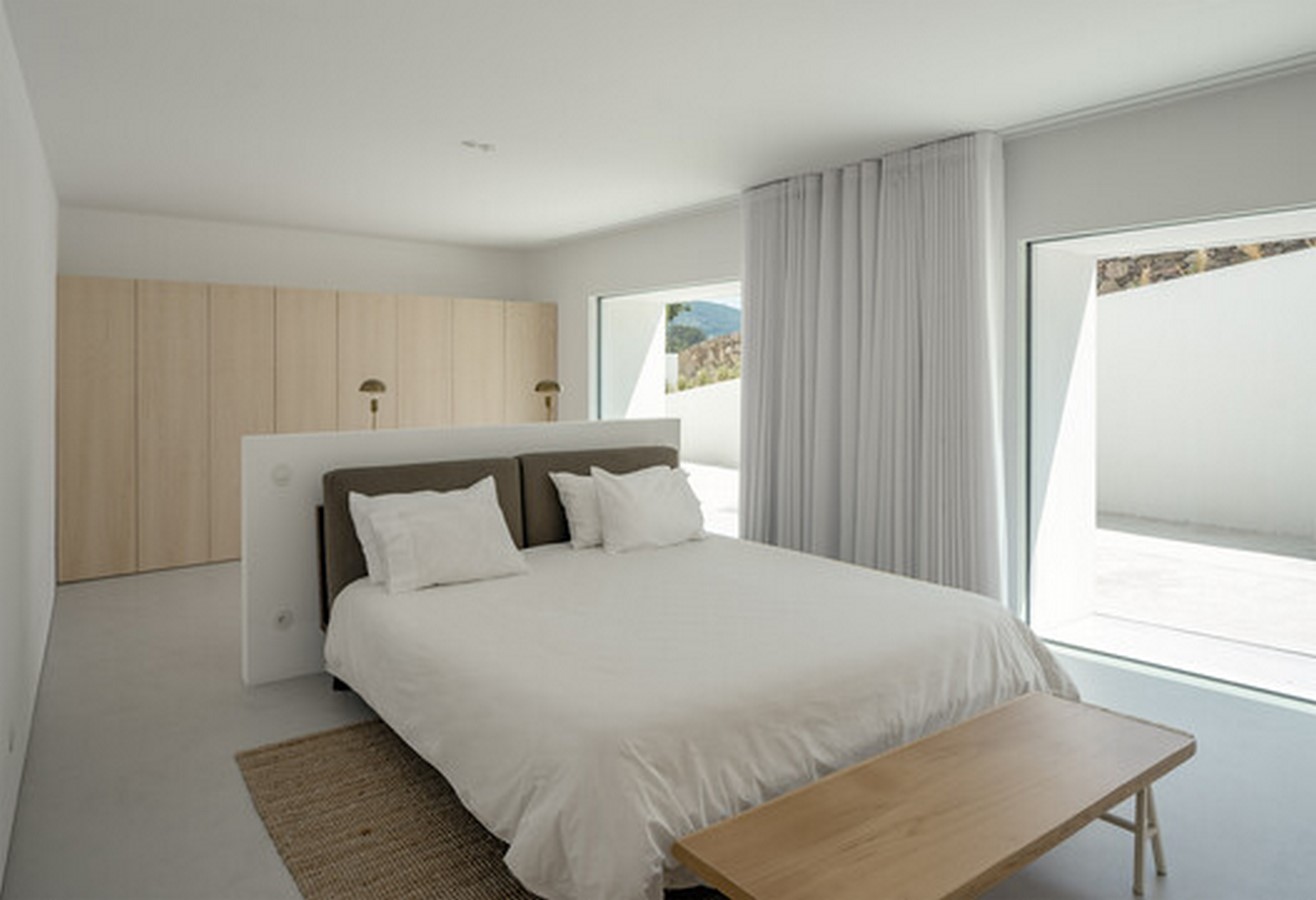
Initial Assessment
The original house, spanning 444 m² over two stories, stood amidst a 947 m² plot. Despite its solid concrete construction, the property suffered from neglect and vandalism, with signs of erosion evident. The garden areas were overshadowed and lacked vitality, contributing to a dark and damp ambiance.
Architectural Challenges
The façade presented complex and unattractive openings, lacking clarity and hierarchy. Internal variability in ceiling heights and scattered structural elements further compromised spatial unity. The kitchen space, characterized by a double-height ceiling and suspended iron structures, required significant restructuring to achieve a cohesive design.
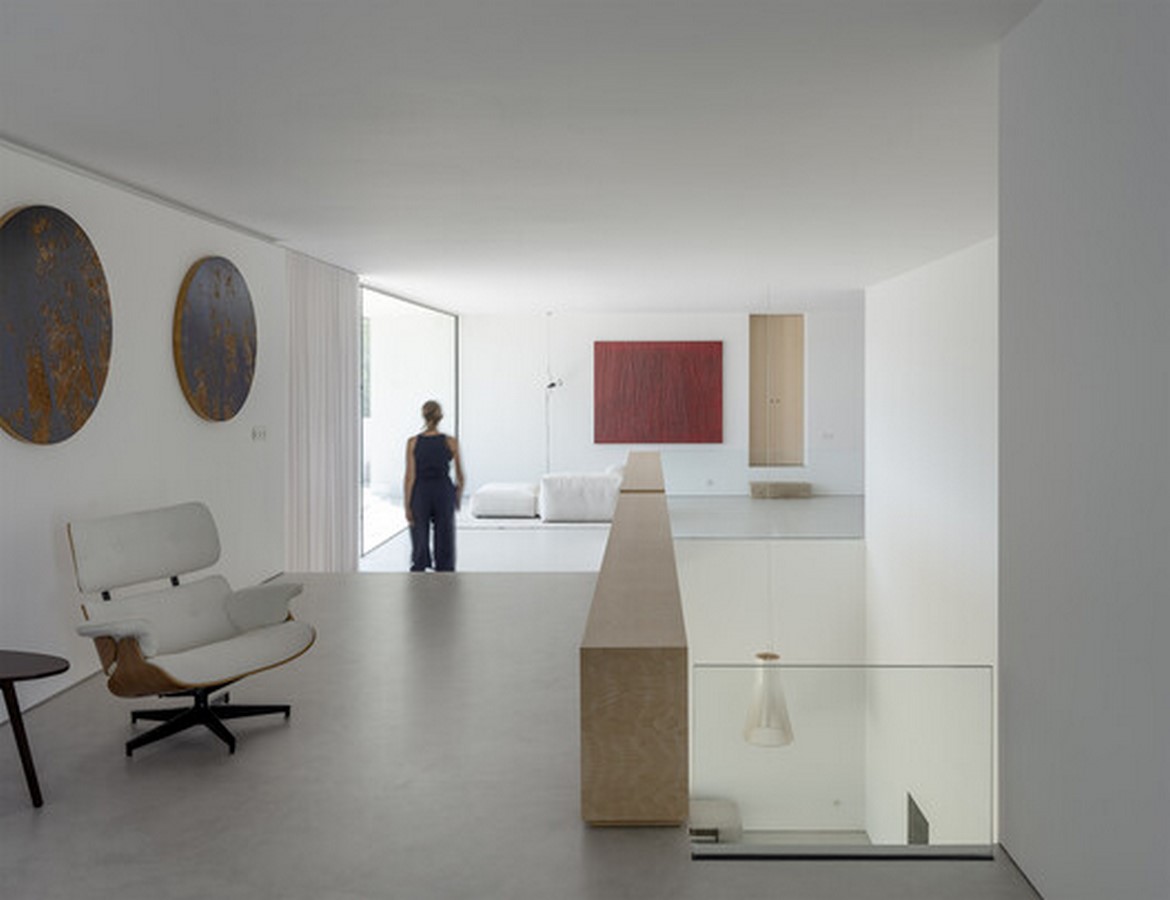
Renovation Approach
With a limited budget for the 700 m² renovation, the architects prioritized eliminating excess and restoring the property’s essence. Stained and vandalized stones were coated with a natural-colored mortar, while original wall stucco was meticulously restored. Unnecessary suspended ceiling structures were removed, and interior spaces were redefined through strategic demolition and reconstruction.
Design Principles
The renovation embraced simplicity and authenticity, utilizing natural materials and minimizing artificial embellishments. Openings were closed with wood, creating a seamless integration between interior and exterior spaces. Architectural lighting was carefully integrated or concealed, ensuring a harmonious ambiance throughout the house. Heating and cooling systems were installed via radiant floors, maximizing comfort and efficiency.
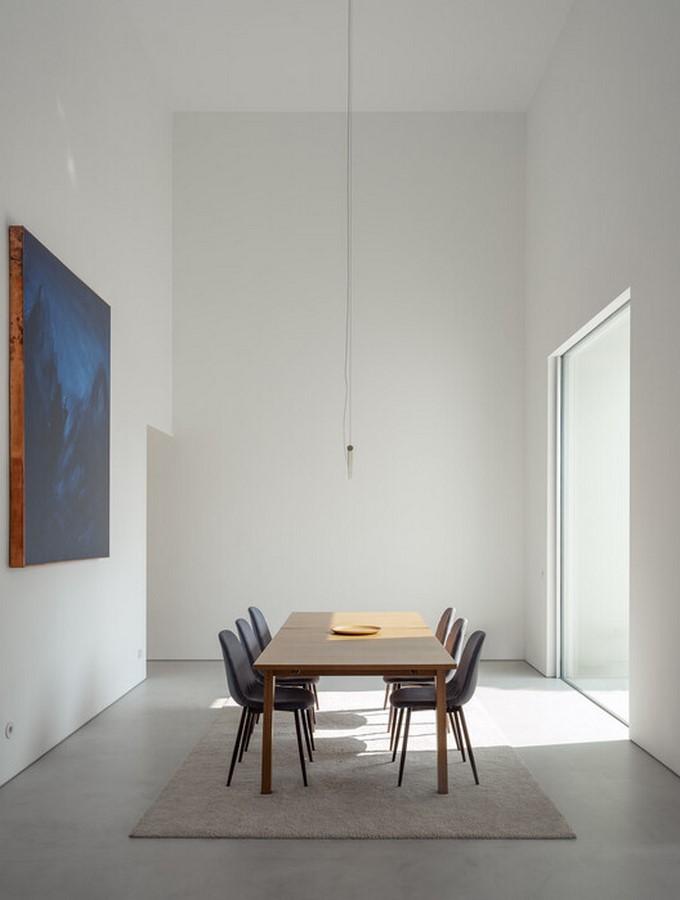
Facade Redesign
A pivotal decision was made to incorporate only one expansive glass opening on each elevation, providing unobstructed views of the surrounding landscape. This minimalist approach emphasized the connection between indoor and outdoor spaces, enhancing the overall spatial experience.
Conclusion
The TI House renovation project stands as a testament to NOARQ’s commitment to preserving architectural integrity while embracing contemporary design principles. Through thoughtful restoration and strategic interventions, the once-abandoned structure has been transformed into a modern sanctuary, seamlessly blending functionality with timeless elegance.

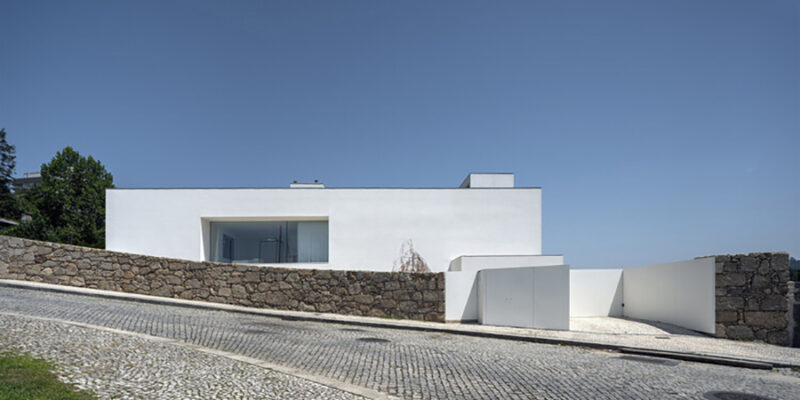






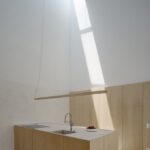
















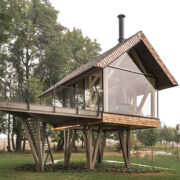
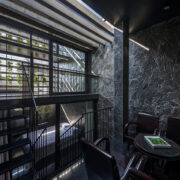

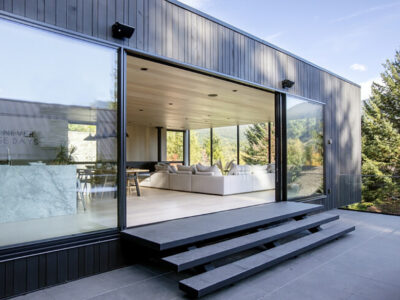
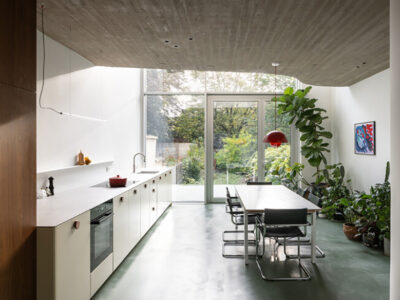

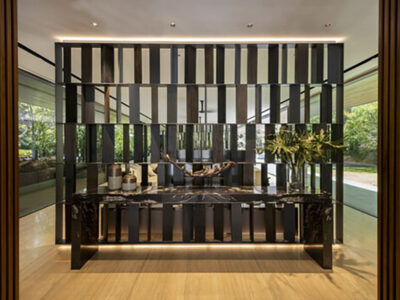
Comments